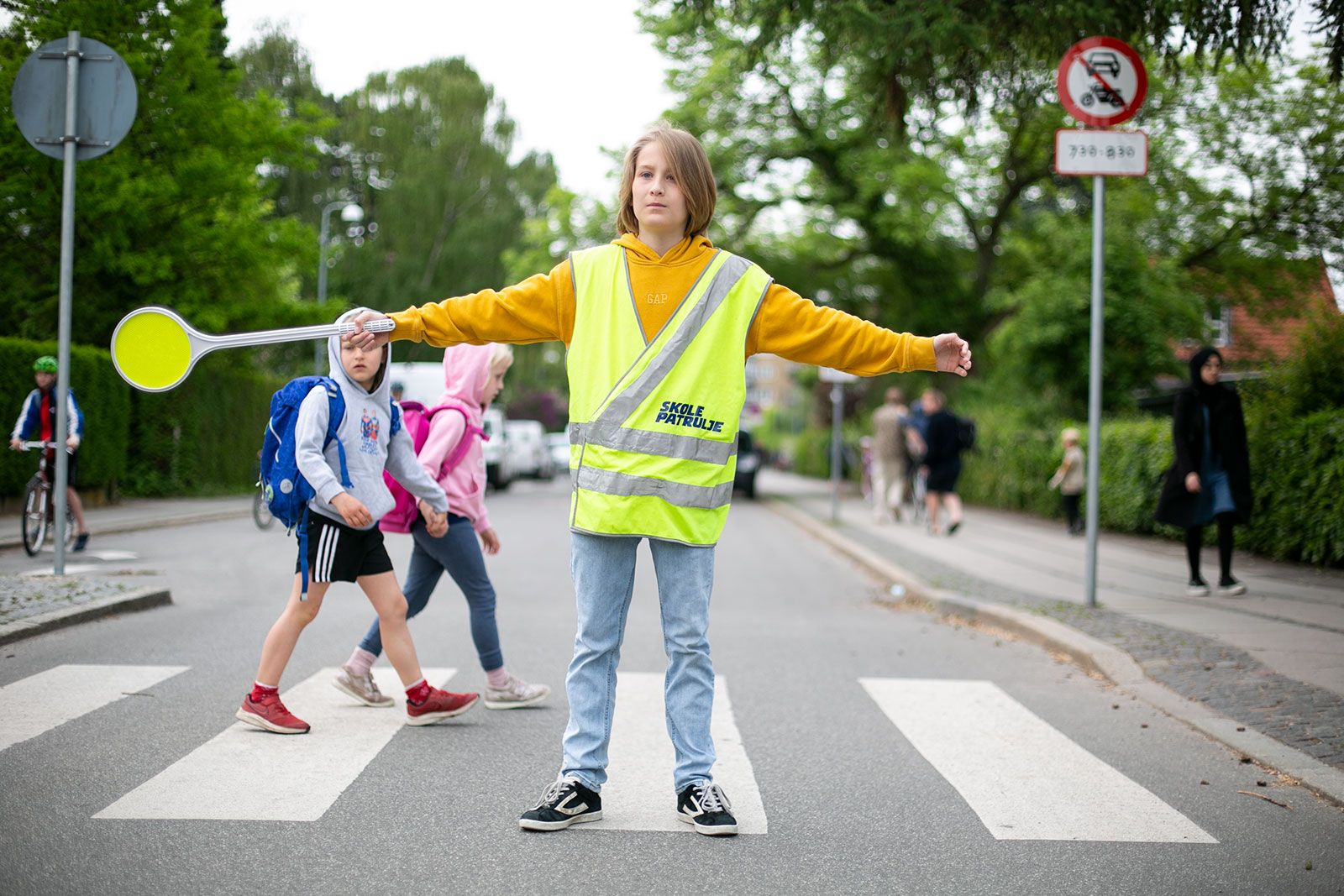Imagine the scene. An irate driver threateningly shows their fist, and their passenger gives the finger as they drive past at speed, disregarding the signs whilst endangering lives.
Many of us road-users have had this, or worse, over the years. Sometimes it’s our fault.
But in this case, and many others, the recipients of the anger are just kids working as part of the ‘school patrol’, stepping out onto the road with signs to ensure their fellow students can cross the road safely every morning.
According to a 2019 survey conducted by Epinion for the road safety council Rådet for Sikker Trafik, 38 percent have experienced hostility from motorists whilst performing their duties.
Cyclists guilty too
In Britain they’re called Lollipop Ladies/Men, in North America, crossing guards, and in Australia, crosswalk attendants, and in Denmark they’re called every name under the sun, according to the survey.
The hostility is clearly something other motorists experience. In a more recent survey, while 98 percent say they respect the work of the youngsters and show consideration, only 75 percent feel their peers do the same.
Cyclists, too, are guilty of disrespecting the human barriers, often breaking through the line if they can. While motorists account for 60 percent of the incidents, cyclists weigh in with 21 percent and pedestrians 13 percent.
In cases when they are abused, the youngsters are encouraged to take down licence plates, which are then passed on, via their co-ordinator, to the police.
In some cases, youngsters have had to jump out of the way to avoid being hit.
Campaign to raise awareness
From next Monday, a national campaign will highlight the harassment some students experience.
The ‘Take good care of the school patrol’ campaign will be conducted in collaboration with 77 of the country’s municipalities and LB Insurance.
“There are far too many students in school patrols across the country who have experienced unpleasant things shouted or bad behaviour from road users,” commented Rådet for Sikker Trafik senior project manager Liv Kofoed-Jensen.
“It is not a fair way to treat children who are performing volunteer work for the greater good, and we are therefore focusing on the problem in the new campaign.”














